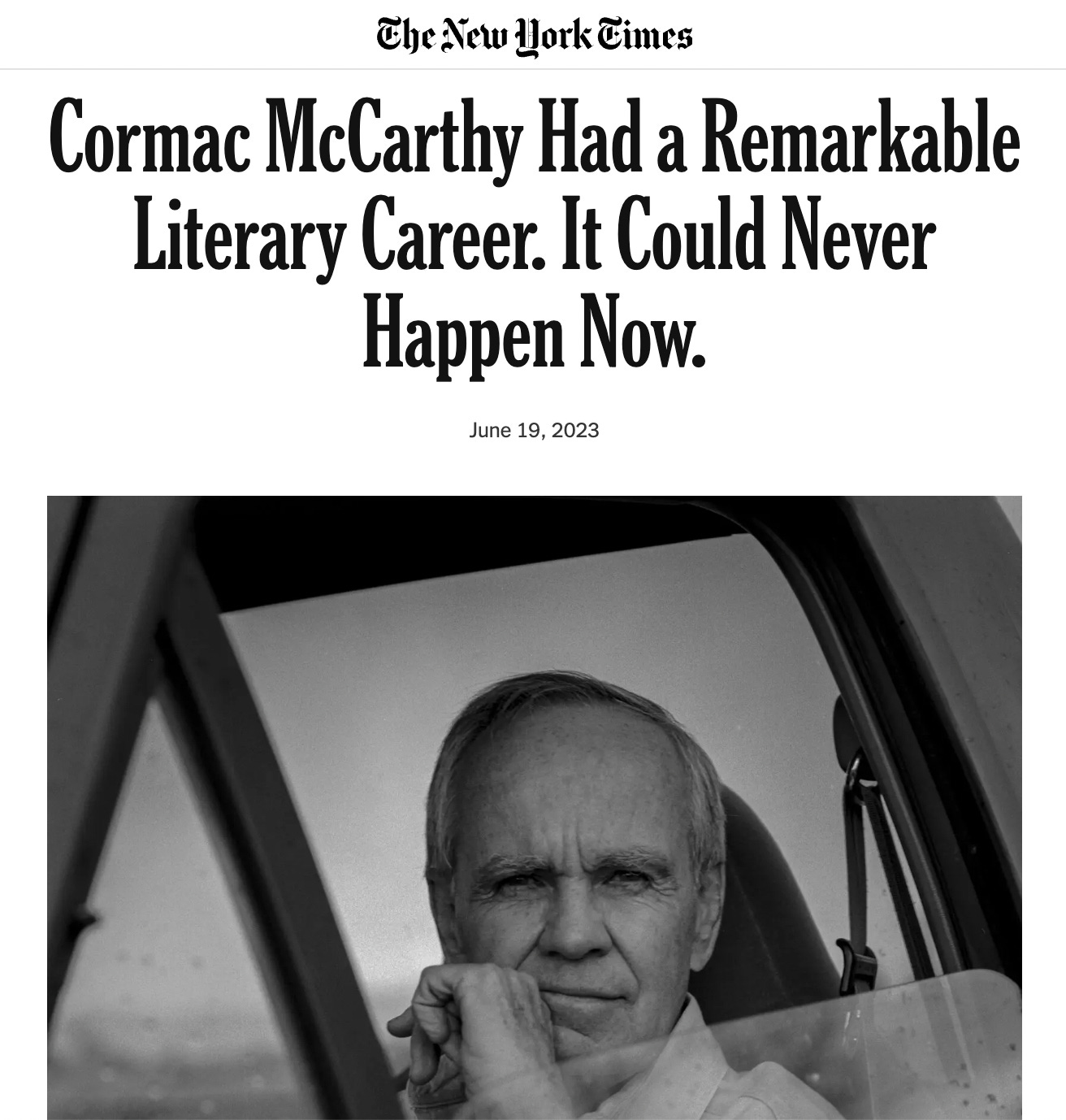According to news reports, the Pulitzer-Prize winning author Cormac McCarthy passed away last week. And the bone-headed takes like the below clunker just keep on coming (sneaky how they show McCarthy in a car since his author photos always have a timeless vibe and seeing McCarthy behind the wheel looking all cosmo smoothie like that is jarring.)
The prob…
Keep reading with a 7-day free trial
Subscribe to Kurt Vonnegut Radio to keep reading this post and get 7 days of free access to the full post archives.




